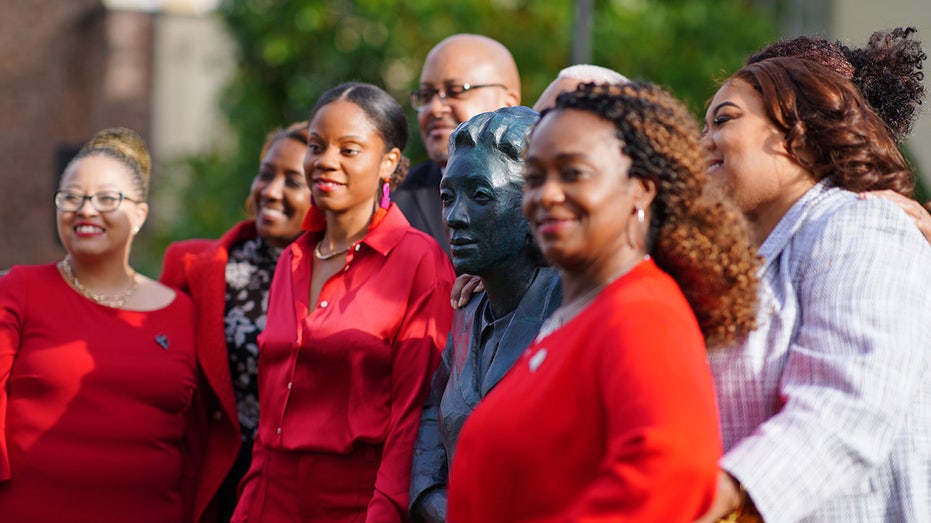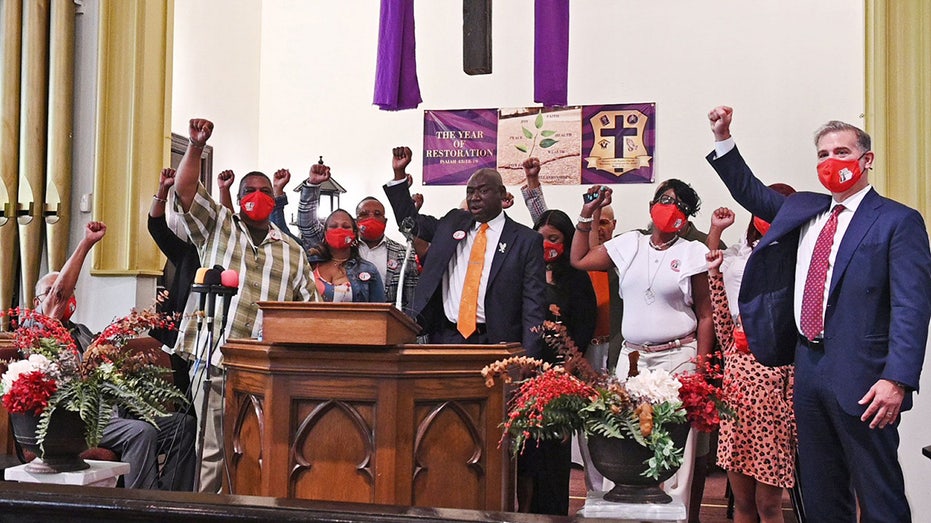Henrietta Lacks family settles with biotech company Thermo Fisher in lawsuit alleging racist US medical system
The case goes back to Johns Hopkins Hospital's research in using cancer cells obtained from Henrietta Lacks in the 1950s
The family of Henrietta Lacks, a Black woman whose cervical cancer cells obtained during a tumor biopsy at Johns Hopkins Hospital in the 1950s were used in revolutionary medical research without her consent, reached a settlement with Thermo Fisher Scientific in Baltimore federal court Tuesday.
Through Ben Crump, the civil rights lawyer famous for securing the historic $27 million settlement for George Floyd’s family, Lacks’ descendants had argued in a lawsuit filed in 2021 that the Waltham, Massachusetts, biotechnology company unjustly enriched itself off the so-called HeLa cells, reaping billions of dollars from a racist medical system.
Tissue harvested from the Black woman’s tumor in 1951 – when it was not illegal to do so without a patient’s permission – became the first human cells to continuously grow and reproduce in lab dishes. Lacks died of cervical cancer at just age 31 in the "colored ward" of Johns Hopkins, but the HeLa cells went on to become a cornerstone of modern medicine, enabling countless scientific and medical innovations, including the development of the polio vaccine, genetic mapping and even COVID-19 vaccines.
In a statement Tuesday, which would have been Lack’s 103rd birthday, attorneys Crump and Chris Seeger announced that "members of the family of Henrietta Lacks and Thermo Fisher have agreed to settle the litigation filed by Henrietta Lacks’ Estate, in U.S. District Court in Baltimore."
BEN CRUMP DELETES VIRAL TWEET BRANDING PREGNANT NURSE RACIST AFTER HER LAWYER STEPS IN

The family of Henrietta Lacks at the unveiling of a statue on the 70th anniversary of her death at Royal Fort House in Bristol, United Kingdom, on Oct. 4, 2021. (Ben Birchall/PA Images via / Getty Images)
"The terms of the agreement will be confidential. The parties are pleased that they were able to find a way to resolve this matter outside of Court and will have no further comment about the settlement."
While most cell samples died shortly after being removed from the body, her cells survived and thrived in laboratories. They became known as the first immortalized human cell line because scientists could cultivate them indefinitely, meaning researchers anywhere could reproduce studies using identical cells.

Attorney Ben Crump, second from left, walks with Ron Lacks, left, Alfred Lacks Carter, third from left, both grandsons of Henrietta Lacks, and other descendants of Lacks, outside the federal courthouse in Baltimore, Oct. 4, 2021. (Steve Ruark, file / AP Newsroom)
FORMER NORTHWESTERN PLAYERS RETAIN PROMINENT CIVIL RIGHTS ATTORNEY AMID HAZING SCANDAL
The remarkable science involved – and the impact on the Lacks family, some of whom had chronic illnesses and no health insurance – were documented in a bestselling book by Rebecca Skloot, "The Immortal Life of Henrietta Lacks," which was published in 2010. Oprah Winfrey portrayed her daughter in an HBO movie about the story.
Johns Hopkins said it never sold or profited from the cell lines, but many companies have patented ways of using them. In their complaint, Lacks’ descendants argued that her treatment illustrates racism in the U.S. medical system.
"The exploitation of Henrietta Lacks represents the unfortunately common struggle experienced by Black people throughout history," the lawsuit says.

Civil rights attorney Ben Crump, center, along with lawyer Christopher Seeger, right, and the family of Henrietta Lacks raise their fists as they call out her name after a news conference. Lacks died of an aggressive cervical cancer. (Kenneth K. Lam/Baltimore Sun/Tribune News Service via / Getty Images)
Thermo Fisher argued the case should be dismissed because it was filed after the statute of limitations expired. Lawyers for the Lacks family said that shouldn’t apply because the company is continuously benefiting.
CLICK HERE TO GET THE FOX NEWS APP
In a statement posted online, Johns Hopkins Medicine officials said they reviewed all interactions with Lacks and her family after the publication of Skloot’s book. While acknowledging an ethical responsibility, the statement said the medical system "has never sold or profited from the discovery or distribution of HeLa cells and does not own the rights to the HeLa cell line."
Though her relatives hadn’t previously received financial compensation, they reached an agreement with the National Institutes of Health in 2013 that gave them some control over how the DNA code from HeLa cells is used.
The Associated Press contributed to this report.




















